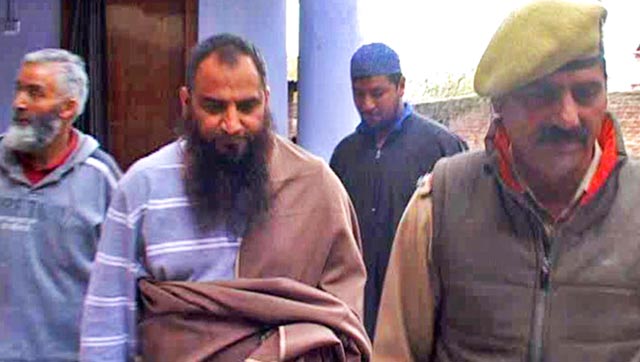Srinagar: Jammu and Kashmir Muslim League chief Masarat Alam’s arrest may have jeopardised chief minister Mufti Mohammad Sayeed’s attempt to reach out to separatists but has strongly positioned the 43-year-old as a natural successor to the ailing Hurriyat chief, Syed Ali Geelani.
Geelani heads the hard-line faction of the Hurriyat, a pack of six parties that has gained in strength over the recent past. Alam–who has been behind bars for around 15 years in the last 25 years for an “unflinching commitment to the separatist cause”–seems to be the perfect person to head it after 84-year-old Geelani.
Once a Pakistan supporter, Alam is steering separatist politics in the state towards street protests and public agitations.
An architect of the 2010 protests that rocked the Valley for months and cost over 100 lives, he introduced slogans and graffiti to separatist politics, in a bid to popularise the ideology and take it to the youth after decades of bloody militant violence.
But his latest move–a welcome rally for Geelani on Wednesday that saw pro-Pakistan slogans and Pakistan flags–has the potential to derail Sayeed’s moves to engage separatists.
The chief minister had staked his fragile alliance with the BJP when his government decided to release Alam, though the trigger had come from a legal procedure, but 40 days later, his efforts seem to have come up short. Repeated moves by Hurriyat leaders and Jammu and Kashmir Liberation Front chief Yasin Malik to meet Pakistan officials and hold provocative street protests have fast shrunk manoeuvring space for Sayeed.
Alam, who comes from a middle-class family, studied in Kashmir’s oldest Christian missionary school Tyndale Biscoe and graduated from Sri Pratap College, Srinagar. He was first arrested in 1990 for being a sympathiser of the armed struggle that had broken out a year ago and remained behind bars until 1996.
The 43-year-old leapt into the political limelight in 2008, when the Valley erupted in protests against a government decision to transfer 99 acres of forestland to the Shri Amarnathji Shrine Board (SASB) to facilitate Hindu pilgrims. He was arrested, only to be released in June 2010 when Kashmir was witnessing another cycle of street protests and deaths after the army said it had killed three Pakistani infiltrators on the border. Authorities later said it was a staged encounter in which three local youngsters were gunned down.


